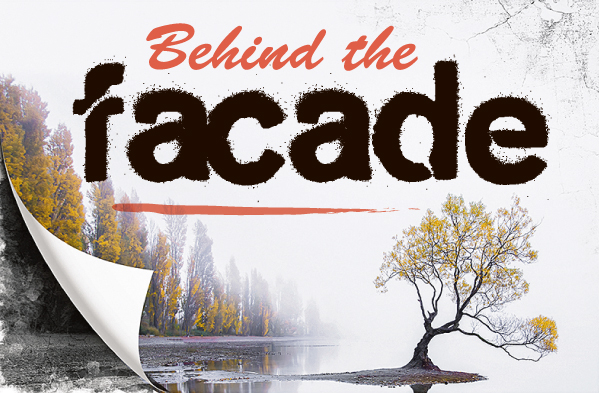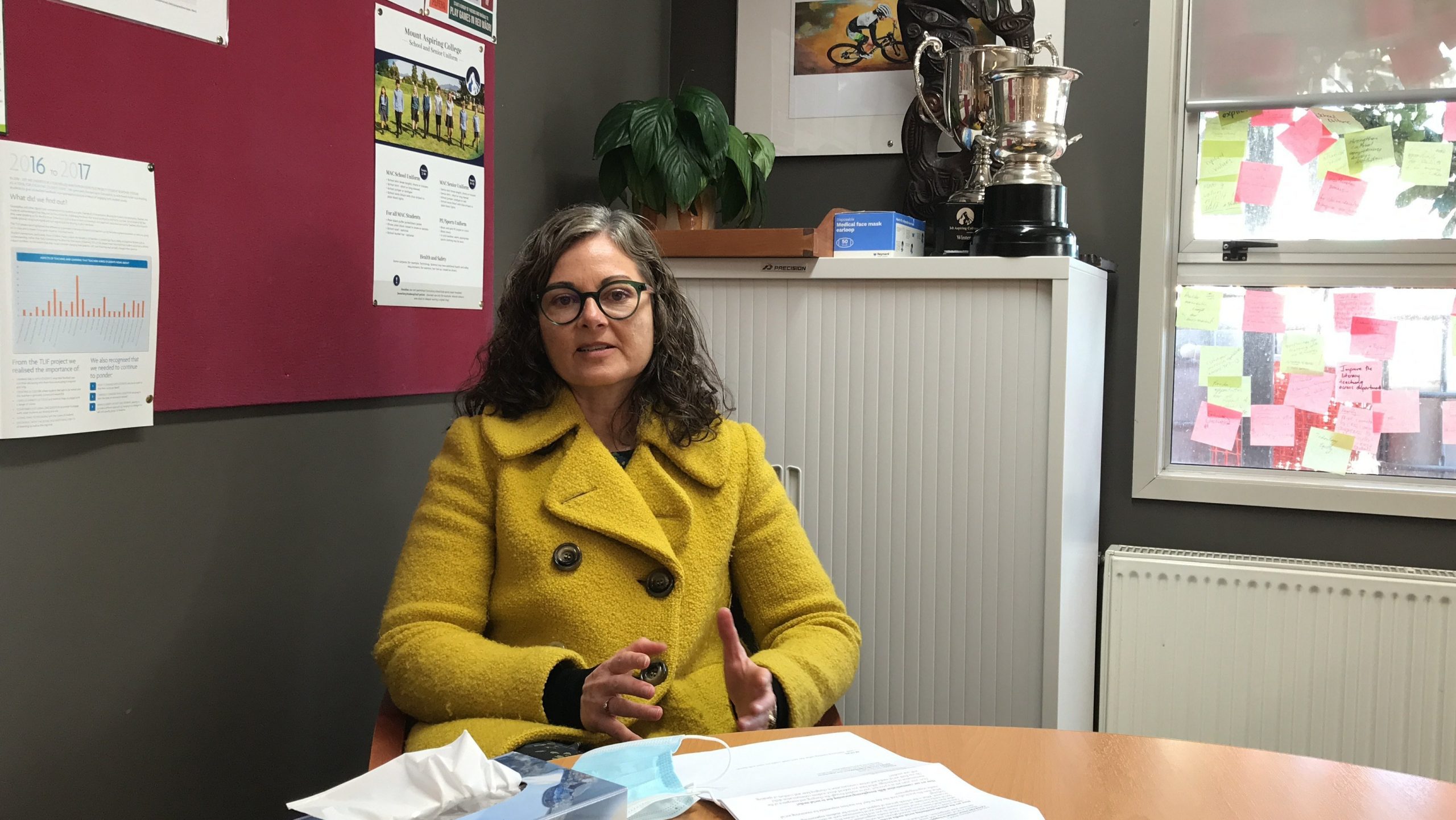Behind the Facade spoke with Mount Aspiring College principal Nicola Jacobsen to discover how social media affects the learning process. Marjorie Cook reports.

What is the online scene at Mount Aspiring College?
‘‘Young people are worldly in terms of their understanding of current events and that is because they have access to pretty much everything.
‘‘I think we [adults] don’t really realise what that means. As adults, we search on the internet for things that support our day-to-day life and it is all pretty boring.
‘‘But the internet is like bringing a turbo car to a 16-year-old who has just got their licence.
‘‘There are no filters in place and if there is no protection installed on that phone, they can access anything.
How much digital information do young people digest?
‘‘[One] statistic is that in 1994 or 1995, annual content would be something a current student [now] gets through in about a week.
‘‘As well as textbooks, there are things they watch online [so] you no longer rely just on textbooks. . . and in terms of people’s brains there is only so much information you can actually process and make sense of.
‘‘I would say for some of our young people their brains are probably pretty tired . . . I have no doubt a lot of them are spending more time than they need on social media and as a result their sleep is really affected.’’
How is MAC monitoring social media access?
‘‘Students are not allowed to access social media at school. That is pretty much where the line is. But some students with special assessment conditions might use their phone to take dictation or photos of the board. That is using a tool for a really good use.
‘‘Otherwise, in years 7 and 8, no cellphones. If it is at school, it is switched off and in their bag.
‘‘Years 9 and 10 can bring phones to school but it is fairly similar. A lot of teachers have a box where phones are put at the start of a lesson and returned at the end.
‘‘Senior students have a little more flexibility again, because they might be organising their life through their calendar and things like that.
‘‘If students are connected to our Wi-Fi network they cannot access any social media sites or any inappropriate content. We use a Ministry of Education system called Network for Learning.
‘‘However, there are always ways around things. There are quite a few apps that will get around any filtering that anyone can provide anywhere.
‘‘If the student has their own data plan and does not connect to our Wi-Fi we have no control over that. So we actually ask parents that they don’t buy data for their young person.’’
Do parents support the policy?
‘‘I think so. No-one wants their child to see something they should not see . . . But a teacher is not going to be standing over their shoulder monitoring everything. That is physically impossible.
‘‘We really want parents to understand their young people should be just using the school Wi-Fi.
‘‘I understand some parents see a cellphone like a rite of passage, a test of responsibility . . . and there are some who see their young person isn’t ready for a phone.
What actions do you take regarding the phone?
‘‘Online bullying happens at weekends, at nights when young people are not supervised, and it comes into school.
‘‘We often get presented with pages of online messages where people have said really horrible things to each other.
‘‘In those cases we have said it is not OK for you to bring your phone to school.
‘‘I haven’t seen too many examples of online bullying during school hours.’’
What do you do to support those who send or receive inappropriate messages?
‘‘We would go down a restorative road, get in touch with parents, explain what has been happening and arrange a meeting where the child can say what they have been doing, take ownership of the harm and say what they are going to do to make it right.’’
How does someone harmed by social media content behave?
‘‘It is the classic thing of withdrawing from friends, not feeling confident, feeling like they might need to protect themselves. Sometimes they lash out.
‘‘Very rarely are these things black and white. Normally the people involved started as friends, something goes wrong and someone does something the other doesn’t like. Messaging is a way to try to take control of a situation or solve a problem.
‘‘It will play out in cyber space rather than by a verbal confrontation. I am not sure which is worse. For me it comes back to simple things and thinking about your values as a person.’’
What else is the school doing in the online space?
‘‘We have [bullying prevention programme] Sticks and Stones and other health programmes. We talk about online social media. The children get an education process as well.
‘‘I think in the history of the world, prohibition has never worked, so banning something doesn’t work.
‘‘We need to show people how to get it right rather than punish them when they do it wrong. Take ownership, understand the harm you have caused and try to put it right.
‘‘We say talk to an adult you trust. An adult has so much more collective wisdom than your 13-year -old friends.’’
What are future responsibilities for learning?
‘‘It continues to be about how people learn to manage their behaviour.
‘‘The online world is here to stay, so we have to be really smart about it and equip young people with the skills they need to navigate it.
‘‘Sometimes they are going to get it wrong. So how do you bring it back so they feel self-respect and dignity instead of feeling they have made a terrible, terrible mistake?
‘‘I also look at what has been reported around elections and use of mis- and dis-information and I think our young people are going to have to be really savvy about the type of information they receive.
‘‘The algorithm is going to curate something only you see. How do you challenge that?’’
Do you know if social media posts have sparked poor youth behaviour in Wanaka on New Year’s Eve?
‘‘I don’t know specifically but I know from experience from working with young people that New Year’s Eve has a certain vibe to it and young people want to get out and celebrate.
‘‘There is also a huge amount of fear of missing out.
‘‘As soon as someone posts online that something is happening, their friend or an acquaintance is going to be saying to their parents, can I please go, I don’t want to miss out on this.
‘‘It is about open communication and having a really good plan and choices.’’
*Answers have been edited to fit the available space in The News.





